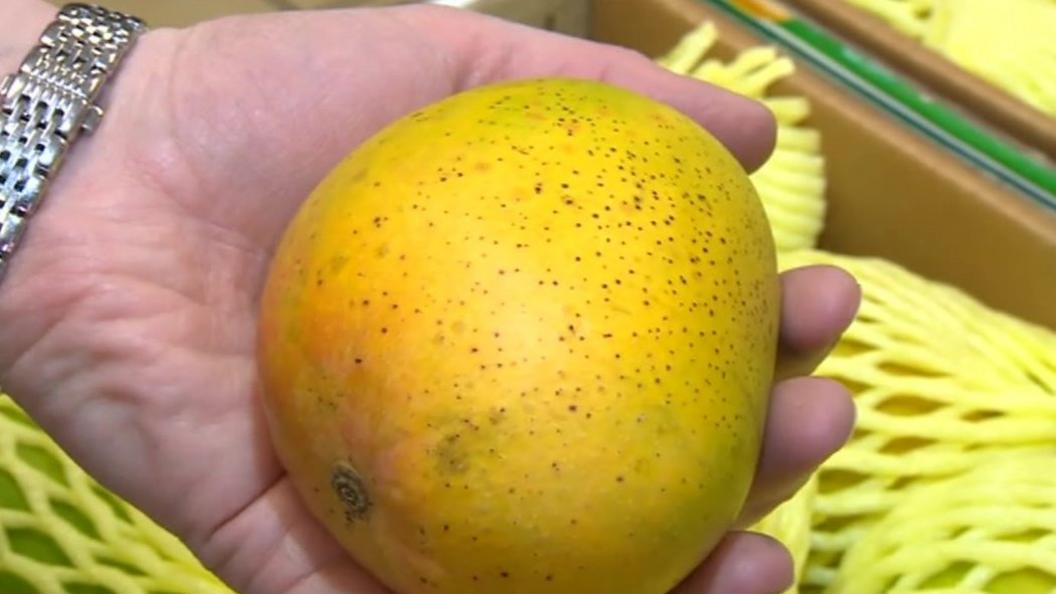UK 'working to end' ban on Indian mango imports
- Published

The UK has said it is "working closely" with India and the European Commission to end a planned ban on mango imports.
Indian mangoes, often sold by the box-load, will be banned from Thursday by the commission because plant pests could threaten European salad crops.
The UK reportedly imports nearly 16 million mangoes each year, worth £6m.
Monica Bhandari, from wholesalers Fruity Fresh, said there were other options to tackle the pests and called for an "urgent" reversal of the ban.
She told BBC Radio 4's The World at One programme that Australia, New Zealand and Japan dealt with the problem using vapour heat treatment and the EU should do the same.
In an e-petition on the UK government's website she said: "For many growers and exporters in India the ban means the end of their business. Growing for the season has commenced and so vast quantities of mangoes will be destroyed."
The European Commission said the unanimous vote to bring in the ban followed "significant shortcomings" in the certification system of such products exported to the EU.
It said "there was a high number of such consignments being intercepted at arrival in the EU with quarantine pests, mainly insects, like non-European fruit flies".
Ban on importing Alphonso mangoes hitting shopkeepers hard
The EC says such pests were found in 207 consignments of fruits and vegetables from India imported into the EU in 2013.
The Department for Environment, Food and Rural Affairs (Defra) said the pests posed no risk to public health but insects such as the tobacco whitefly, which can carry over 100 harmful viruses, could threaten tomato and cucumber crops.
Environment Minister Lord de Mauley said: "India is a key trading partner and these temporary restrictions affect a tiny percentage of the successful business we conduct with them.
"We are working closely with our Indian and European counterparts to resolve the issue and resume trade in these select products as soon as possible."
A Defra statement said: "The products banned can be sourced from other nations and will have minimal impacts on our supply."
- Published23 April 2014
